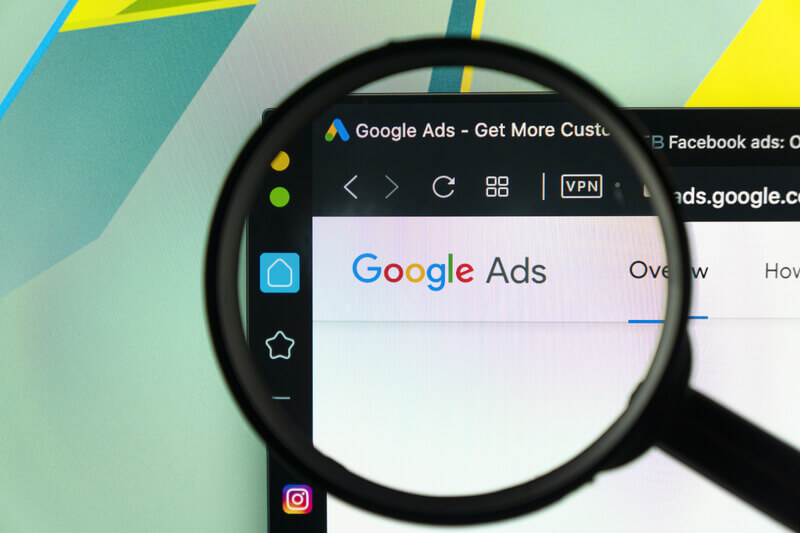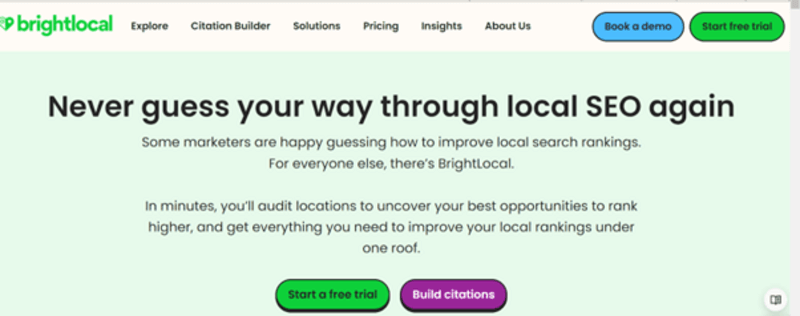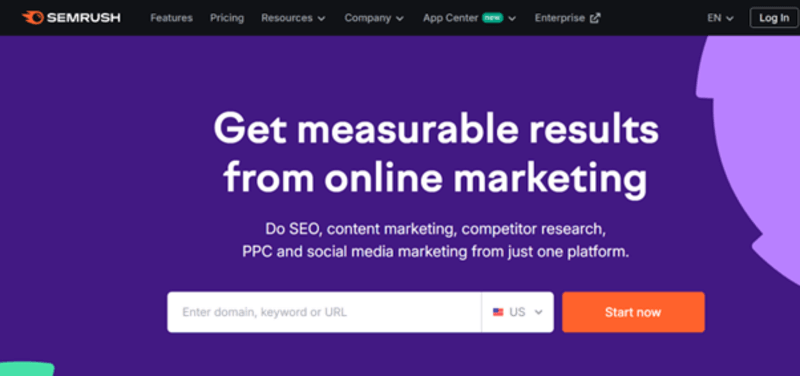Emir is an invaluable member of our team, serving as one of our esteemed Account Managers. With a profound passion for on-page SEO, he possesses an exceptional talent for discovering innovative ways to optimise websites and enhance their rankings. Joining our organisation, Loop, in 2022, Emir brought with him a wealth of expertise gained from his Bachelor’s degree in Marketing Management and Advertising. Currently, he is eagerly pursuing his Master’s degree in International Marketing Strategy, further enhancing his comprehensive understanding of the global marketing landscape. Emir thrives on challenges and continuously seeks fresh opportunities to elevate our clients’ businesses to new heights. Aside from his professional endeavours, Emir has an unwavering passion for culinary arts and loves to cook up a storm. This ardour for cooking exemplifies his drive, creativity, and meticulous attention to detail, qualities that seamlessly translate into his work as a Digital Marketing Executive. His commitment to delivering exceptional results and his genuine enthusiasm for each project make him a trusted and highly sought-after professional. Emir’s profound expertise in on-page SEO, combined with his ambitious pursuit of knowledge and dedication to his clients, make him an invaluable asset to our team. His passion, both in and out of the office, reflects his commitment to excellence, leaving an indelible mark on our clients’ businesses.
Posted on 21/10/2024 by Emir Haskic
Does Google Automatically Localise Search Results?
Google has evolved from being just a search engine to becoming an essential tool for finding geographically relevant information. From booking a restaurant in London to finding a plumber in Manchester, Google automatically tailors search results based on user location, offering more convenience and value for users. This is a process known as localisation.
For businesses, especially those operating in the UK, understanding how Google’s automatic localisation works is crucial for effective SEO strategies.
Understanding Localisation in Search Results
What is Localisation?
In the context of search engines, localisation refers to Google’s ability to customise search results based on the user’s physical location. For instance, a search for “best cafes” from a user in Brighton will prioritise different results than if the same search is made from Birmingham. Google identifies the location and modifies the results accordingly, helping users find more relevant, geographically specific information.
Differences Between Localisation and Personalisation
| Aspect | Localisation | Personalisation |
| Focus | Geographic location of the user | User’s behaviour, preferences, and past interactions |
| Key Input Data | IP address, GPS data, Wi-Fi signals, browser location settings | Search history, browsing patterns, account preferences |
| Primary Purpose | Deliver results relevant to the user’s current physical location | Tailor results to suit the individual’s interests and preferences |
| Examples of Use | Showing local restaurants or services near the user’s location | Displaying content based on a user’s past searches (e.g., preferred news topics or product categories) |
| Dependence on Location | Tied directly to the user’s physical location | Not necessarily tied to location; based on user’s behaviour |
| Type of Results Affected | Primarily affects local business listings, maps, and services | Affects the ranking of content based on user preferences |
| User Control | Can be adjusted by disabling location services | Can be influenced by clearing search history or using incognito mode |
| Examples of Queries | “Coffee shops near me”, “Dentist in London” | “Best football team”, “Latest movies” |
How Google Determines Location
Google employs several methods to determine a user’s location to serve localised search results:
- IP Address: Every device connected to the internet has an IP address, which Google uses to approximate your location. For example, a London-based IP will trigger search results tailored to London.
- GPS Data: For mobile searches, Google can use the device’s GPS data for more precise location targeting.
- Wi-Fi and Cell Tower Data: Even if GPS is off, Google can use signals from nearby Wi-Fi networks or cell towers to determine a user’s general location.
- Browser Settings and Permissions: Users can manually provide their location to browsers like Chrome, or set preferences directly within their Google accounts to fine-tune location settings.
- Search History: Google also considers your past search history when localising results, especially if you frequently search within a specific geographic area.
The Mechanism Behind Localised Search Results
Google’s Algorithm for Local Search
Google’s local search algorithm is designed to prioritise results that are geographically relevant, especially for queries with local intent. A search for “car repair near me,” for example, is inherently local, prompting Google to display results that are both near the user’s current location and highly relevant to their needs.
The algorithm takes into account three key factors:
- Relevance: This refers to how closely a business or webpage matches the user’s query. For example, a search for “restaurants in Liverpool” will prioritise businesses that Google identifies as relevant based on their content, keywords, and business category.
- Distance: How far the business or service is from the user’s location. A business located closer to the searcher is more likely to appear higher in the local results.
- Prominence: This factor looks at how well-known or reputable the business is. Factors like online reviews, mentions in local directories, and overall web presence affect a business’s prominence.
Types of Localised Results
There are several types of localised results that Google may show:
- Local Packs: This is a grouping of three to four local business listings, often accompanied by a map showing their locations. For example, searching for “hairdresser in Bristol” will trigger a local pack showing the top hairdressers in the area, alongside a map for easy navigation.
- One-box Results: Sometimes, Google identifies a single highly relevant result, known as a One-box result. For example, searching for a popular restaurant chain might show its nearest location in this format.
- Organic Results: These are traditional results, but when they’re localised, they rank businesses, websites, and services that are geographically closer or more relevant to the searcher.
Evidence of Automatic Localisation
In a case study, BrightLocal reported that 46% of all Google searches have local intent, underscoring the importance of localisation. For example, a UK search for “best plumber” conducted in London shows significantly different results compared to the same search performed in Glasgow.
In 2024, research conducted by SEMrush revealed that nearly half (46%) of all Google searches are focused on finding local information or services relevant to users.
Additionally, according to Moz, Google My Business (GMB) signals, including proximity and categories, account for 36% of the ranking factors for local search results. This means optimising for localisation is increasingly important for small businesses in the UK to stay competitive.
User Experience Insights
UK users often note how Google tailors results based on their location. For example, a search for “petrol stations near me” yields localised results featuring the nearest filling stations and prices. The convenience provided by this localisation is evident in user feedback: according to Google’s Consumer Barometer, 82% of smartphone users in the UK use their phones to find local businesses.
UK-based companies like Boots and Tesco have capitalised on this by ensuring their stores are listed accurately in local search results, boosting their in-store traffic. A further study by Think with Google showed that “near me” searches have increased by over 900% in the UK in the last two years, with businesses adapting to meet the growing demand for localised search queries.
Implications for Businesses and SEO
Impact on Local Businesses
For UK-based small businesses, automatic localisation presents a significant opportunity. By appearing in Google’s local packs and maps, businesses can drive foot traffic and increase conversions.
Google My Business (GMB) is an indispensable tool for local businesses. According to a study by BrightLocal, businesses that maintain their GMB profile see a 70% increase in clicks to their website and a 50% increase in direction requests to their physical location.
Challenges Faced by Larger Brands
Larger UK brands face distinct challenges when managing local SEO, despite having a strong national presence. These companies must still optimise for local searches to maintain visibility across different regions. For businesses with multiple branches, ensuring that NAP (Name, Address, Phone) information is consistent and accurate across all locations is crucial for appearing correctly in local search results.
To improve local SEO, many large organisations invest significantly in creating localised landing pages for each branch or store. This process ensures that search engines can serve users the most relevant results based on their geographic location. In addition to landing pages, managing customer reviews and maintaining an active, accurate Google Business Profile (formerly Google My Business) for each location is essential. These efforts help ensure that each store or office ranks well in local search, improving overall discoverability and customer engagement.
Tools and Techniques for Viewing Localised Results
How to Emulate Different Locations in Searches
SEO professionals and businesses need to see how their websites rank in different locations. Tools such as Google’s AdPreview, BrightLocal, and SEMRush enable businesses to simulate searches from various locations in the UK. This helps them understand how search results differ from London to Cardiff, or from Glasgow to Belfast.
Google’s AdPreview Tool
Google’s Ad Preview tool allows businesses and SEO professionals to simulate searches from various geographic locations without affecting their personalised or localised search results. It’s particularly useful for checking how a website ranks in different cities across the UK. For example, a business in Birmingham can use the tool to see how their website performs in searches made from Manchester, Leeds, or any other UK location. AdPreview helps ensure that local SEO strategies are effective without altering actual search metrics or triggering ads.

BrightLocal
BrightLocal is a powerful local SEO tool designed to help businesses track their performance in specific locations. It allows users to monitor local search rankings, manage and respond to customer reviews, audit local citations, and track the performance of Google Business Profiles. With detailed insights into local keyword rankings across different regions, BrightLocal is invaluable for businesses looking to dominate local search markets. It also provides tools for managing local reputation and monitoring competition in various cities or regions.

Image Source: BrightLocal
SEMRush
SEMRush is a comprehensive SEO tool that includes location-specific search analysis features. It enables businesses to track keyword rankings, audit their websites, and gain insights into competitors’ performance in different regions. For local SEO, SEMRush offers location-based tracking, allowing businesses to simulate searches from specific UK cities and see how their content ranks. It also offers additional tools for optimising local SEO strategies, including analysing backlinks, performing site audits, and tracking keyword performance across multiple locations.

Image Source: SemRush
Practical Tips for Users
Here are some practical tips for checking localised results:
- Google AdPreview: A free tool that allows you to simulate searches from different geographic areas.
- Browser Developer Tools: You can manually change your geographic location using Chrome’s Developer Tools to see local results from other regions.
- Incognito Mode: Use incognito mode to avoid personalisation from previous searches and view more neutral localised results.
Localisation plays a crucial role in how Google delivers search results, particularly for UK users and businesses. As Google continues to refine its local search algorithm, businesses must stay informed and optimise for local SEO. Whether you’re a small business aiming to attract local customers or a larger brand navigating regional variations in search results, understanding how Google localises content is essential to improving visibility and growing your online presence.
For users, Google’s automatic localisation offers more relevant, convenient, and geographically specific search results, improving the overall search experience. From local eateries to high-street shops, Google is enhancing the way we find local information.
Loop Digital at your service for the ultimate SEO solutions
Looking to enhance your online visibility and grow your business? Loop Digital is your one-stop solution for all your SEO needs. Whether it’s improving your local rankings, optimising your website for search engines, or crafting tailored SEO strategies, our expert team is here to help. Get started with a free consultation to assess your current SEO performance and discover how we can boost your digital presence. Stay ahead of the competition — subscribe to our newsletter for the latest tips, insights, and updates from the world of SEO. Let Loop Digital drive your business forward with results that matter!
Looking for your next opportunity?
Digital marketing careers
We’re always on the lookout for talented individuals to join our ever growing team. If you think you’d be a great match for Loop Digital, we’d love to hear from you.

Join 300+ business owners getting weekly growth strategies - subscribe now.
"*" indicates required fields






